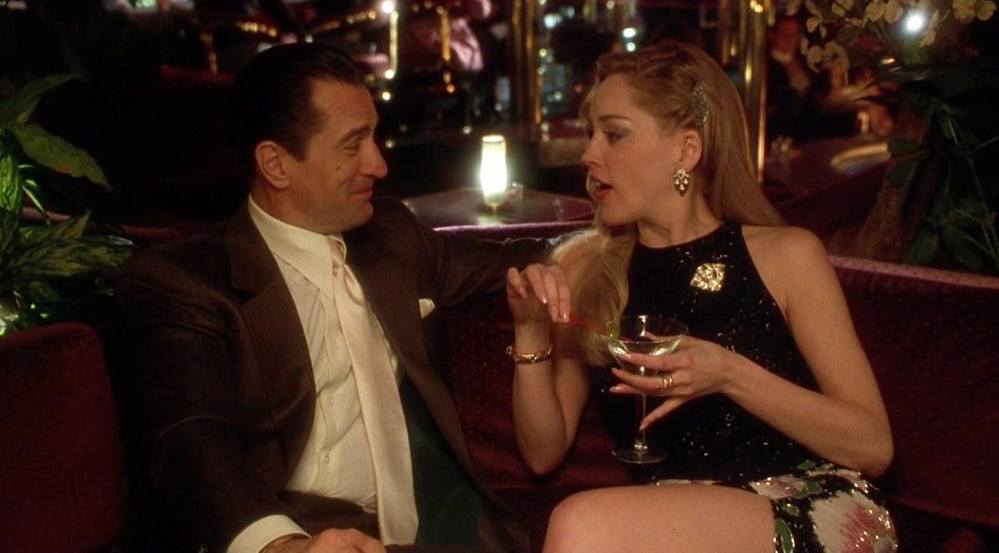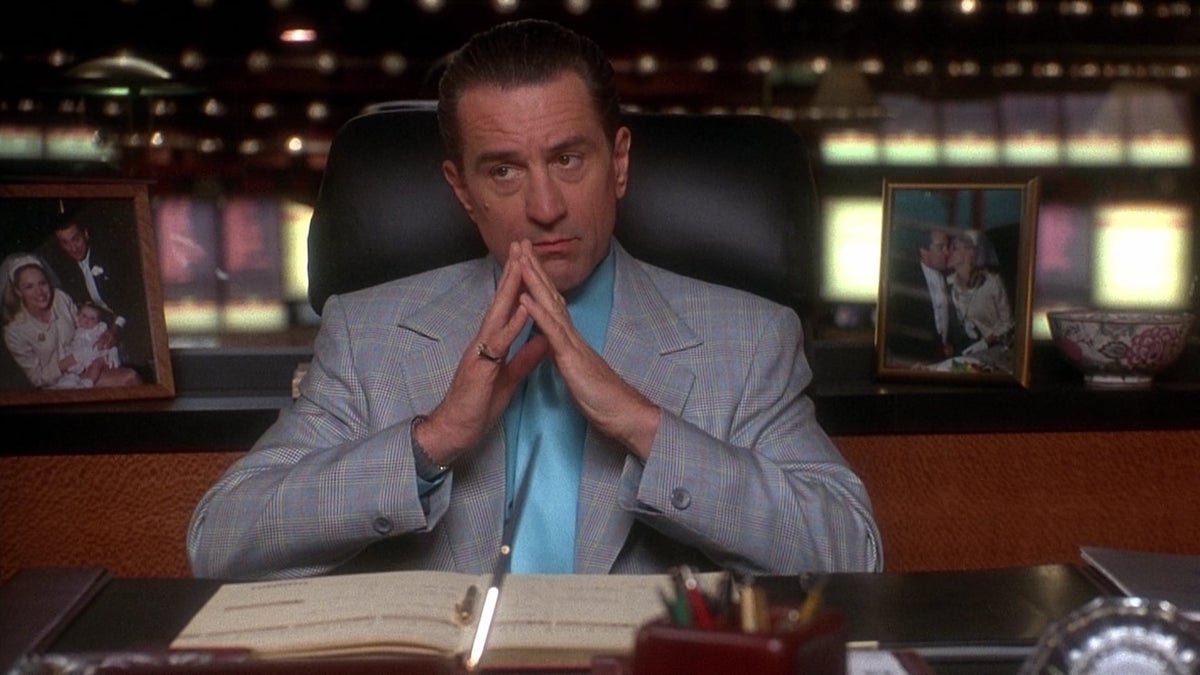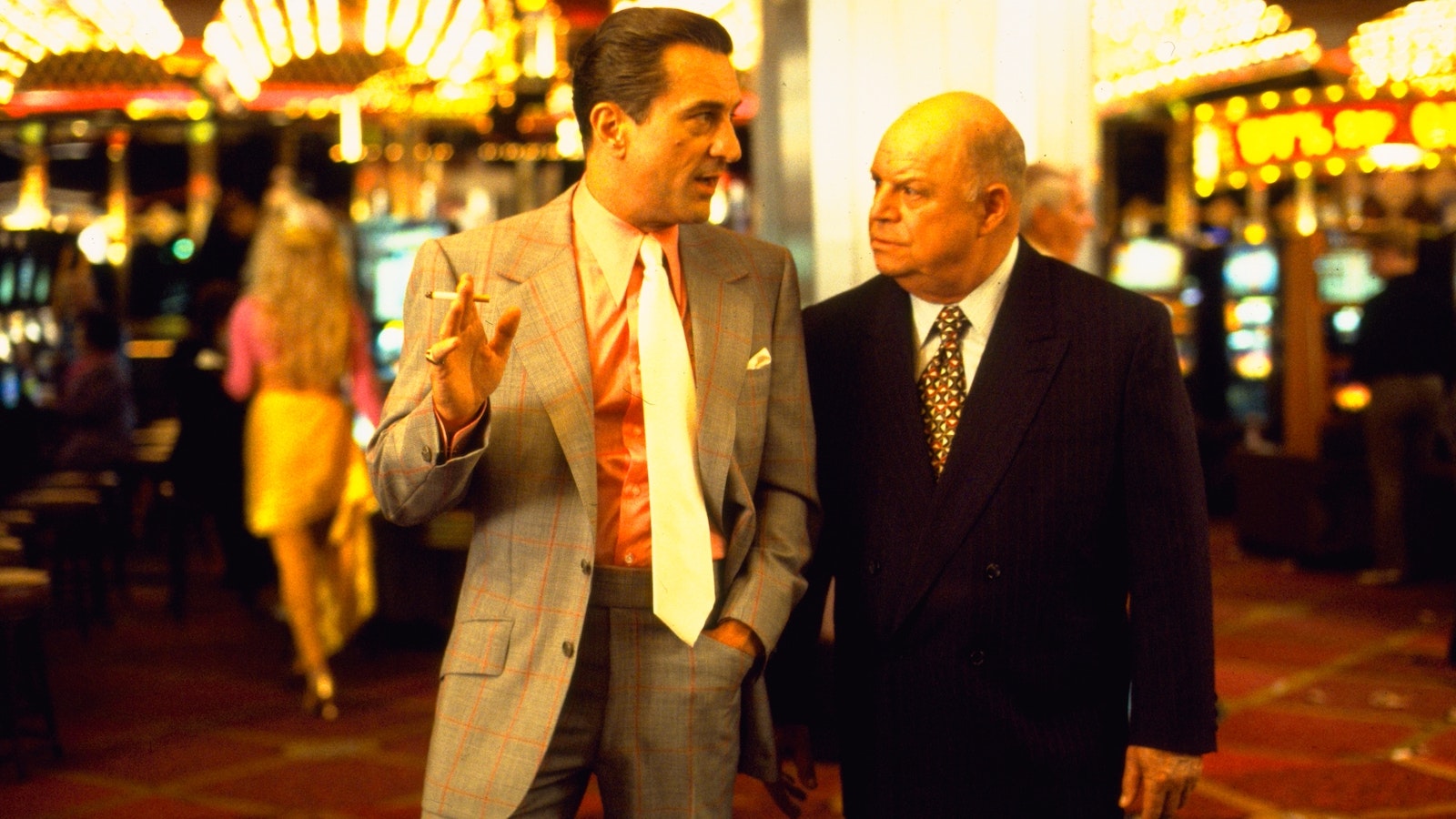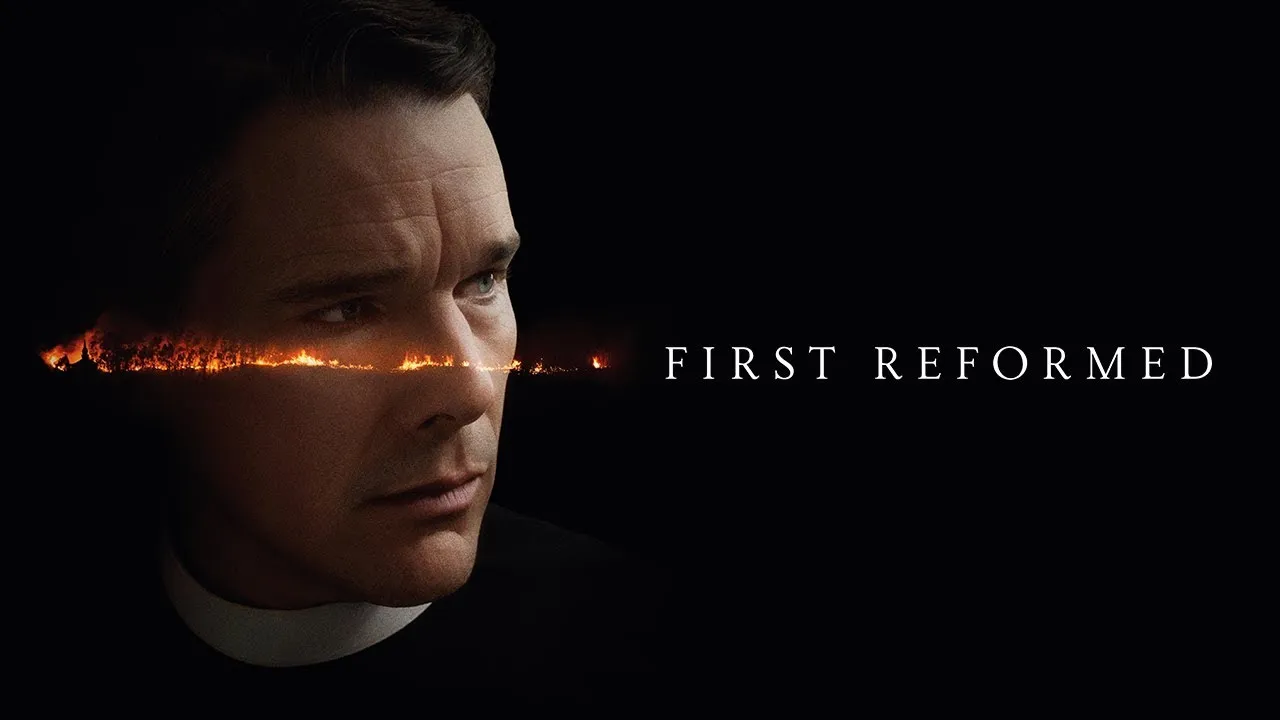Casino (1995)
A Brutal Symphony of Greed, Power, and Inevitable Collapse
Martin Scorsese’s Casino (1995) is not just a crime epic. It’s a sprawling, glittering, and ultimately tragic saga about the rise and fall of an empire built on corruption, loyalty, betrayal, and human excess. Set in the glamorous yet morally decaying world of 1970s Las Vegas, Casino paints an unflinching portrait of what happens when unchecked ambition meets the American Dream.
At the heart of Casino is Sam "Ace" Rothstein (Robert De Niro), a professional sports handicapper handpicked by the Chicago mob to run the fictional Tangiers Casino. Ace is a perfectionist. He sees patterns, controls variables, and believes in managing risk — whether it’s in gambling or human behavior. And for a time, he thrives. His casino is profitable, his books are clean (on the surface), and he has the blessing of powerful men in the shadows.

But order is never permanent in Scorsese’s universe.
Enter Nicky Santoro (Joe Pesci), a volatile enforcer and Ace’s childhood friend from back home in Chicago. Nicky is sent to Las Vegas to “protect interests,” but quickly becomes a liability. His violent methods, lust for power, and growing criminal empire draw heat from law enforcement and begin to unravel the stability Ace worked so hard to build.
And then there’s Ginger McKenna (Sharon Stone), a stunning hustler with street smarts and an incurable self-destructive streak. When Ace marries her, he believes he can control her like he controls the casino. But Ginger, fiercely independent and emotionally fragile, is still entangled with her manipulative ex, Lester Diamond (James Woods), and increasingly spirals into addiction, paranoia, and rage.
What Casino excels at — beyond its dazzling production design and bravura performances — is scale and structure. Scorsese tells this story through dual voice-over narration: Ace and Nicky both guide us through the events from their own points of view. This layered, almost documentary-like narrative adds texture and complexity, making the audience complicit in the unfolding chaos. We're not just watching crime — we’re inside it.

Unlike Goodfellas, which followed a single man’s rise through the Mafia, Casino explores the collision of systems: organized crime, corporate capitalism, politics, and media. It’s about the paradox of trying to run an illegal operation as if it were a legitimate business — and how that contradiction inevitably collapses under its own weight.
Las Vegas itself becomes a character — seductive, gaudy, artificial, and corrupt. Cinematographer Robert Richardson bathes the city in golden light and neon hues, making every shot feel like temptation incarnate. The opulence of the Tangiers, the luxury homes, the casinos, and even the jewelry all serve to reflect the illusion of control, even as the characters fall deeper into chaos.
At the center of the film is De Niro’s icy, precise performance. Ace is no gangster; he's a businessman — but one who believes in order to the point of delusion. His fatal flaw is thinking he can manage people like numbers. He underestimates Ginger’s emotional needs and Nicky’s unchecked ambition. In trying to keep the house from falling, Ace becomes as much a victim of his pride as he is of betrayal.

Joe Pesci, meanwhile, delivers one of his most terrifying performances. Nicky Santoro is a powder keg — a man so unpredictable and violent that even his own allies fear him. Pesci walks a tightrope between comic outburst and chilling brutality, and his inevitable fall is perhaps the most gruesome moment in the film, emphasizing the brutal code of silence within the mob.
And then there’s Sharon Stone, who delivers a tour-de-force performance as Ginger. She’s tragic, infuriating, magnetic, and utterly human. Her descent into addiction and paranoia is gut-wrenching, and her toxic relationship with both Ace and Lester provides the emotional core of the film. Stone earned a well-deserved Academy Award nomination for her role, elevating what could’ve been a mere femme fatale into a fully realized, tragic figure.
One of the strengths of Casino is its unflinching depiction of consequences. Everyone falls. There is no romanticism in the end. As law enforcement cracks down, and the mob decides to clean house, the once-glittering empire turns to dust. Nicky is brutally executed. Ginger dies alone in a motel. The Tangiers is imploded, replaced by a corporate, family-friendly version of Vegas. Ace survives — but not intact. In the final scenes, he's reduced to living in the shadows, quietly placing bets, a relic of a bygone era.

Scorsese, as always, peppers the film with symbolic imagery and biting irony. The soundtrack — featuring The Rolling Stones, Bach, and Tony Bennett — underscores the dramatic arcs of the characters, often contrasting upbeat tunes with scenes of brutal violence or emotional collapse. Editing by Thelma Schoonmaker is crisp, aggressive, and rhythmic, especially in montages that show the daily workings of the casino or the slow unraveling of Ace and Ginger’s marriage.
While Casino runs long (nearly three hours), its pace rarely lags. Its ambition lies not in plot twists but in comprehensiveness — this is not just a crime story, but an epic of how empires built on vice and ego ultimately cannibalize themselves.

-
Control vs. Chaos – Ace’s obsessive need to manage everything is repeatedly thwarted by uncontrollable human nature.
-
Loyalty and Betrayal – Every major relationship is fractured by greed, ambition, or insecurity.
-
Power and Illusion – Vegas is a city built on illusions: of luck, love, and legitimacy.
-
The American Dream turned nightmare – Success becomes the seed of destruction when built on shaky moral ground.
Casino is a dazzling, brutal, and operatic crime saga. While often overshadowed by Goodfellas, it stands as one of Scorsese’s most technically accomplished and thematically rich works. It dares to go longer, dig deeper, and strike harder. Through unforgettable characters, razor-sharp dialogue, and a masterful sense of place, Casino is not just about the mafia — it’s about America, ambition, and the illusion of control.
Though the house always wins in Vegas, Casino shows us that even the house can fall — especially when the foundation is built on sin.

-1751513653-q80.webp)

